Youth Lab Tbilisi: Young Georgians Reflect on Social Cohesion and the Future of EU Enlargement
How can the European Union foster stronger, more cohesive, and resilient societies in its candidate countries? And what insights can young people offer about Georgia’s own European trajectory? These were the guiding questions during Youth Lab Tbilisi, hosted by PMCG on 25 November within the Horizon Europe project InvigoratEU.
The workshop brought together motivated young participants who explored how social cohesion intersects with EU enlargement. Facilitators Nina Abzianidze and Giorgi Khishtovani introduced the group to the project’s analytical framework, highlighting five dimensions of social cohesion essential for resilient democracies: access to education, access to economic and technological resources, access to healthcare, social participation and belonging, and political participation and trust. These dimensions provided a structured entry point for discussing the domestic context of candidate countries and their EU integration paths.
Following the introductory session, participants engaged in group work examining concrete challenges that shape both candidate countries and the EU’s broader neighbourhood environment, from uneven access to services in rural areas to fluctuating institutional trust and the impact of geopolitical uncertainty. Based on these discussions, young people formulated a set of hands-on recommendations aimed at policymakers.
The Youth Lab in Tbilisi demonstrated that young Georgians view EU integration not only as a geopolitical choice but also as an opportunity to advance fairness, participation, and trust within society. Their proposals reflect a strong interest in practical measures that strengthen resilience at both community and institutional levels.
Insights generated in Tbilisi now join contributions from Youth Labs across Europe, feeding into InvigoratEU’s overarching effort to co-create knowledge and provide evidence-based recommendations for policymakers working on the future of EU enlargement and neighbourhood policy.
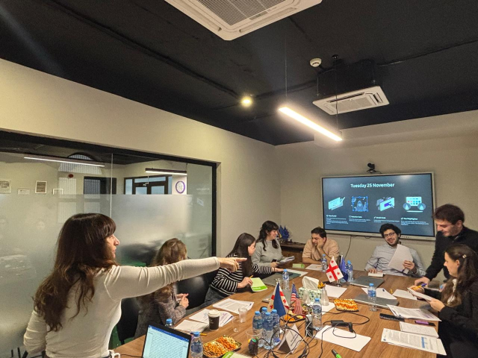
InvigoratEU Youth Lab Held in Belgium (TEPSA)
On 21 November, TEPSA welcomed a group of 26 students and young graduates to the InvigoratEU Youth Lab, to discuss and collect their policy recommendations on how to re-invigorate the EU Enlargement and Neighbourhood policy in a changing geopolitical context.
The workshop, moderated by TEPSA’s Executive Director Mariam Khotenashvili, took place online and gathered students from across Europe. After an introductory lecture exploring the rationale, drivers and constraints characterising today’s Enlargement process, the students were asked to reflect on the challenges it is facing, before separating into smaller groups to develop their policy propositions.
Their suggestions focused on overcoming institutional hurdles, providing credible security guarantees, supporting civil society, ensuring the protection of the rule of law and fundamental values, and better communicating the benefits of enlargement both in the Member States and the candidate countries.
Their contributions, together with the results of 20 other Youth Labs that took place in different European cities, will feed directly into the project research and the preparation of its final toolkit.
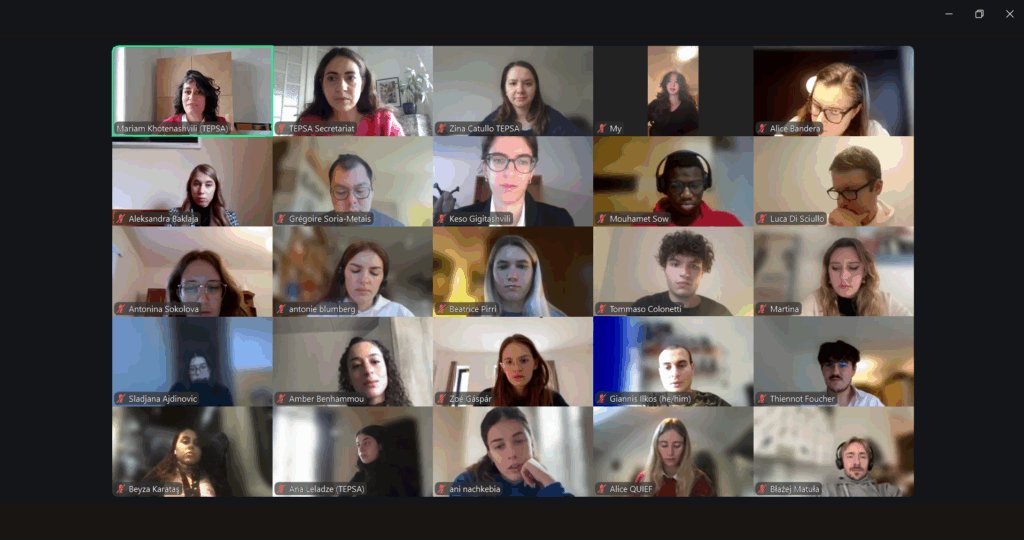
InvigoratEU Youth Labs in Warsaw and Cracow
Jagiellonian University in Cracow organised two InvigoratEU Youth Labs. The first, held online on 17 November, brought together 18 students from the University of Warsaw to discuss the current state of the EU enlargement process and the main features of EU neighbourhood policy, with a view to future prospects for enlargement. The workshop was facilitated by Prof. Artur Gruszczak and Prof. Magdalena Góra – members of the InvigoratEU team at the Jagiellonian University. The Students’ Associations for International Debate and for Human Rights and Humanitarian Crises took the initiative in selecting the participants and preparing them for the debate.
The first part, moderated by Prof. Gruszczak, refreshed participants’ knowledge of the history of EU enlargement and explained InvigoratEU’s perspective on modernisation and geopolitical logics. In the second part, the students – divided into two groups – engaged with the key problems and challenges of EU enlargement, taking into account both the EU’s legal, political and economic determinants and neighbouring countries’ difficulties in meeting the enlargement criteria. They underlined the diversity of the neighbourhood in terms of modernisation and geopolitics, and the difficulty of implementing a cohesive enlargement agenda. The students frequently pointed to various barriers (political, ideological, material/economic and cultural) that hinder and delay the enlargement process. They emphasised that the efforts made by candidate countries are not always adequately recognised by EU institutions and many Member States, which can at times discourage these countries from maintaining the required scope and pace of the enlargement process.
The subsequent stage – work in small groups – resulted in policy recommendations for decision-makers and educators. These recommendations were discussed during the wrap-up session of the workshop and focused on demonstrating the long-term cost-effectiveness of enlargement, improving adjustment mechanisms within the enlargement process and promoting the EU more actively in its neighbourhood.
The InvigoratEU Youth Lab in Kraków was hosted by the Faculty of International and Political Studies on 27 November and attended by 16 undergraduate and graduate students, including nationals of EU Member States and candidate countries. The workshop was facilitated by Prof. Artur Gruszczak and Dr Agata Mazurkiewicz – members of the InvigoratEU team at the Jagiellonian University. The Students’ Associations for International and Area Studies and for National Security contributed to the organisation of and participation in the workshop.
Following an introductory presentation of the InvigoratEU project and the fundamentals of the EU enlargement process, an intensive group debate addressed the key obstacles, challenges and opportunities for integrating neighbouring countries into the EU. Participants shared and discussed reflections on the current condition of the EU and the complex realities of the Eastern Neighbourhood and the Western Balkans. The students highlighted the lengthy and highly conditional nature of individual enlargement processes and identified the case of Turkey as particularly illustrative.
Recommendations presented by the four working groups pointed to the need to increase the effectiveness of EU decision-making by abolishing the veto in the Council and introducing qualified majority voting across all EU policies. An interesting idea was the proposal of an “interim membership” status as an option for candidate countries under strict conditionality. Other recommendations concerned more effective anti-corruption measures in candidate states, with an active role played by EU institutions. In the field of political education, the students proposed enhancing EU literacy among citizens by introducing courses on European integration into secondary and higher education curricula. They also suggested improving the accessibility of EU-related concepts through interactive and playful forms of learning.
Both workshops demonstrated the participants’ strong engagement in discussions on enlargement and their genuine commitment to developing proposals and recommendations that could contribute to the ongoing debate on developments in the EU and its neighbourhood.
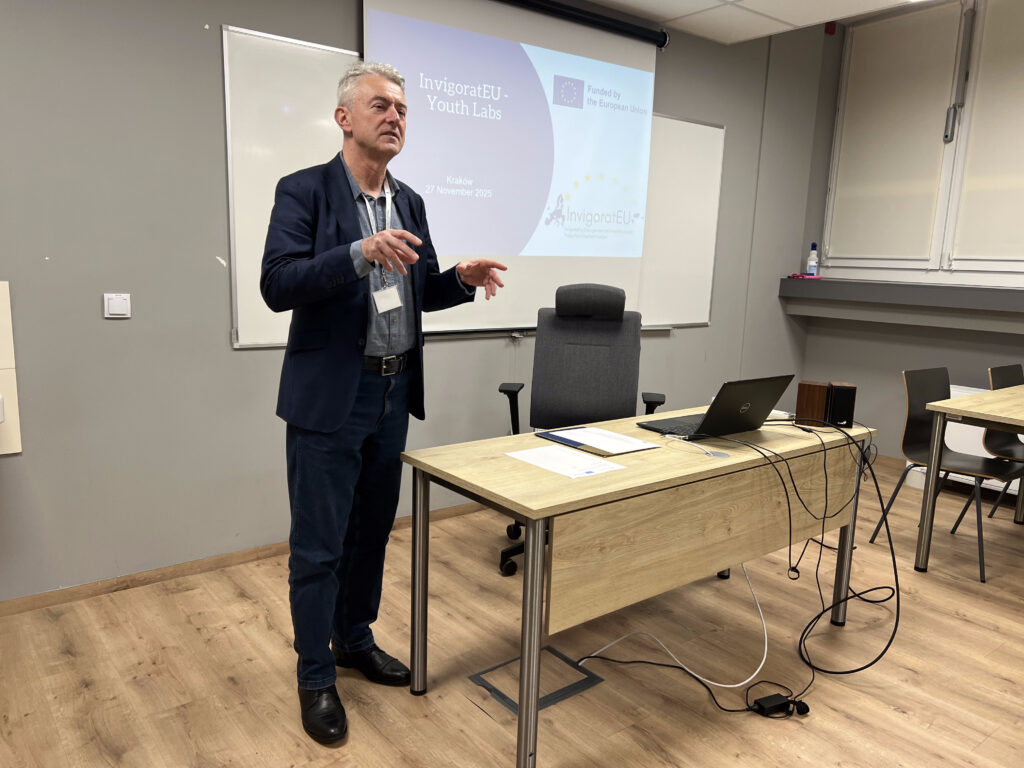
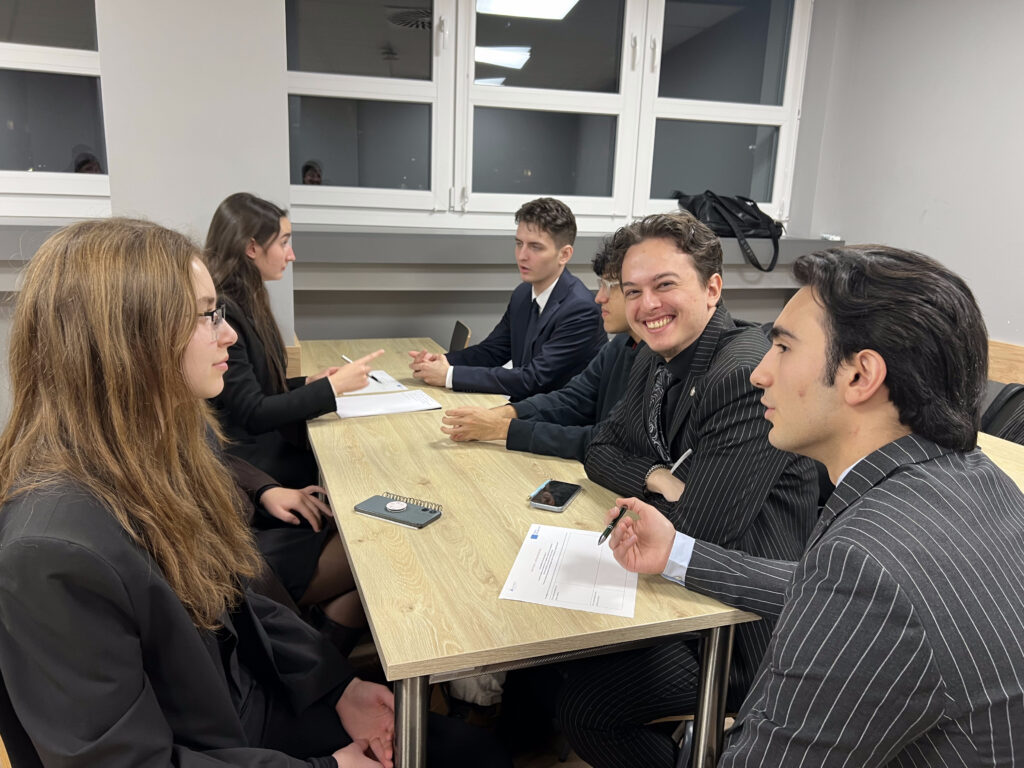
InvigoratEU Youth Lab Held in Rome (IAI)
On 15 November 2025, as part of the InvigoratEU project, the Istituto Affari Internazionali (IAI) held a two hour Youth Lab at Link Campus University in Rome. The initiative brought together university students, mainly from the Political Science programme, who participated both in person and online. In line with the aims of InvigoratEU, the Lab sought to collect ideas and policy proposals on the future of the European Union and its enlargement process.
The workshop was organised in two sessions and framed within the broader objectives of InvigoratEU, a project dedicated to analysing and revitalising the role of the European Union in its neighbourhood and in the enlargement process, with a particular focus on strengthening the resilience of the Union and its partner countries. The first session introduced the history of EU enlargement and key concepts such as neighbourhood policy, modernisation logic, resilience and geopolitics. Matteo Bonomi and Federico Castiglioni illustrated the institutional dynamics involved in handling enlargement requests, focusing on the roles of the European Council, the European Commission, and the European Parliament.
In the second session, following the Youth Lab methodology, students worked in groups to reflect on past enlargements of the European Union. They identified achievements and challenges linked to the enlargements towards Southeastern and Eastern Europe, touching on issues ranging from geopolitical tensions to institutional weaknesses and migration related concerns.
Each group then appointed a spokesperson and developed concrete policy recommendations. Among the proposals were the reinforcement of monitoring mechanisms for judicial reforms, anti corruption measures and human rights standards in candidate countries, as well as stronger security and economic support for neighbouring states preparing for accession. Students also suggested exploring qualified majority voting to streamline decision making and reducing strategic dependencies in areas such as energy and food supplies to enhance the resilience of both the Union and its partner countries.
The discussion, constructive and wide ranging, also addressed broader questions such as the war in Ukraine, the limits of EU expansion and the definition of Europe itself. The workshop concluded with a plenary exchange on the recommendations and with a reminder that the insights gathered will contribute to the ongoing research and dissemination activities of InvigoratEU, including the development of toolkits for policy makers, civil society and the educational sector.
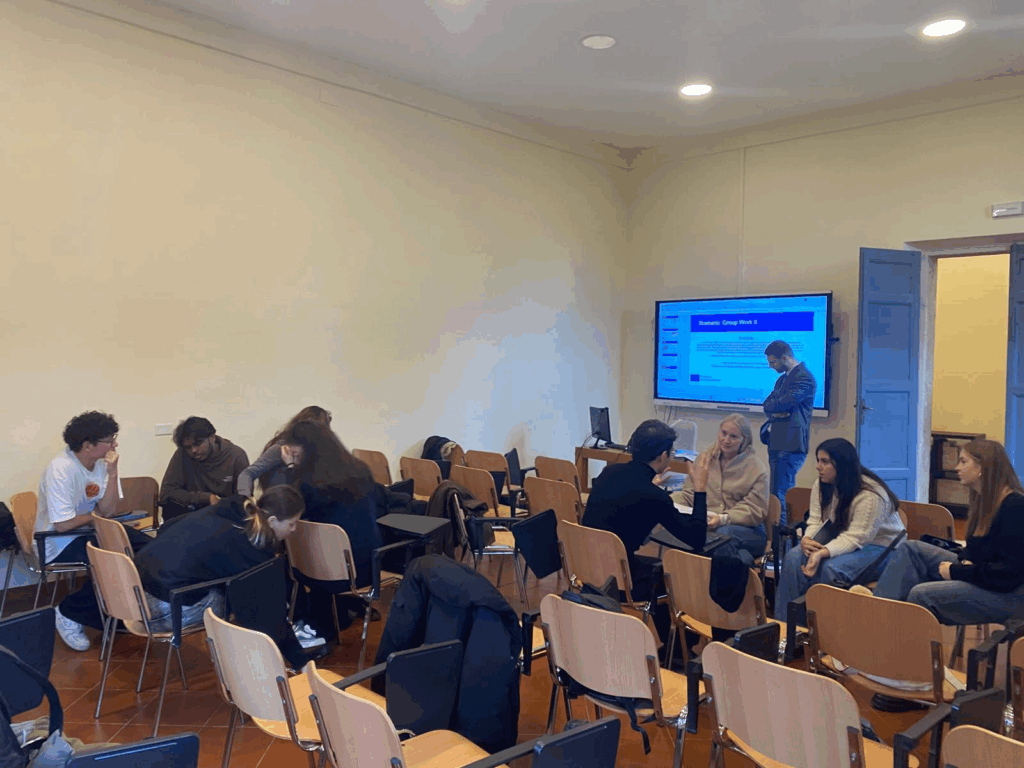
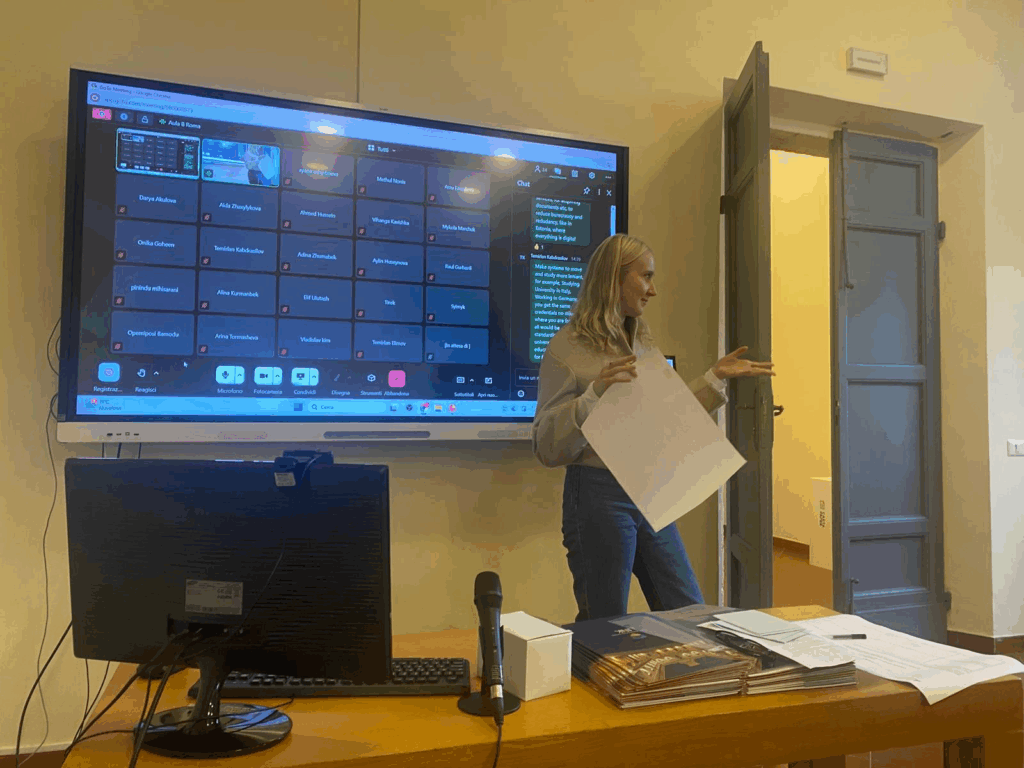
InvigoratEU Youth Lab Held in Belgrade: Students Debated EU Enlargement and Neighbourhood Challenges
Belgrade, 12 November 2025
On 12 November, the European Policy Centre (CEP) organised the InvigoratEU Youth Lab, bringing together undergraduate and postgraduate students from universities and faculties across Serbia. The event aimed to create a structured space for young people to exchange views on the key challenges of the EU’s enlargement and neighbourhood policies, as well as to formulate recommendations for policymakers, educational institutions, and civil society.
The workshop consisted of several components: a brief introductory lecture on EU Enlargement and Neighbourhood Policy, followed by two interactive group sessions. In the first session, participants identified the main obstacles facing both the EU’s enlargement and neighbourhood agendas, as well as the European integration processes of candidate countries. The second session focused on developing concrete recommendations, which students later presented in short pitches. Their proposals emphasised the need for more inclusive educational programmes, stronger and more credible commitments from candidate country governments, and a more proactive role for civil society in bringing the EU closer to citizens.
Participants demonstrated a notably pro-European outlook and strong interest in political developments. Unsurprisingly, discussions were shaped by the current political context in Serbia, including the large student protests against corruption. This backdrop enriched the debate and highlighted that young people in Serbia increasingly view the European Union as a natural partner in efforts to restore democratic practices and rebuild the rule of law.
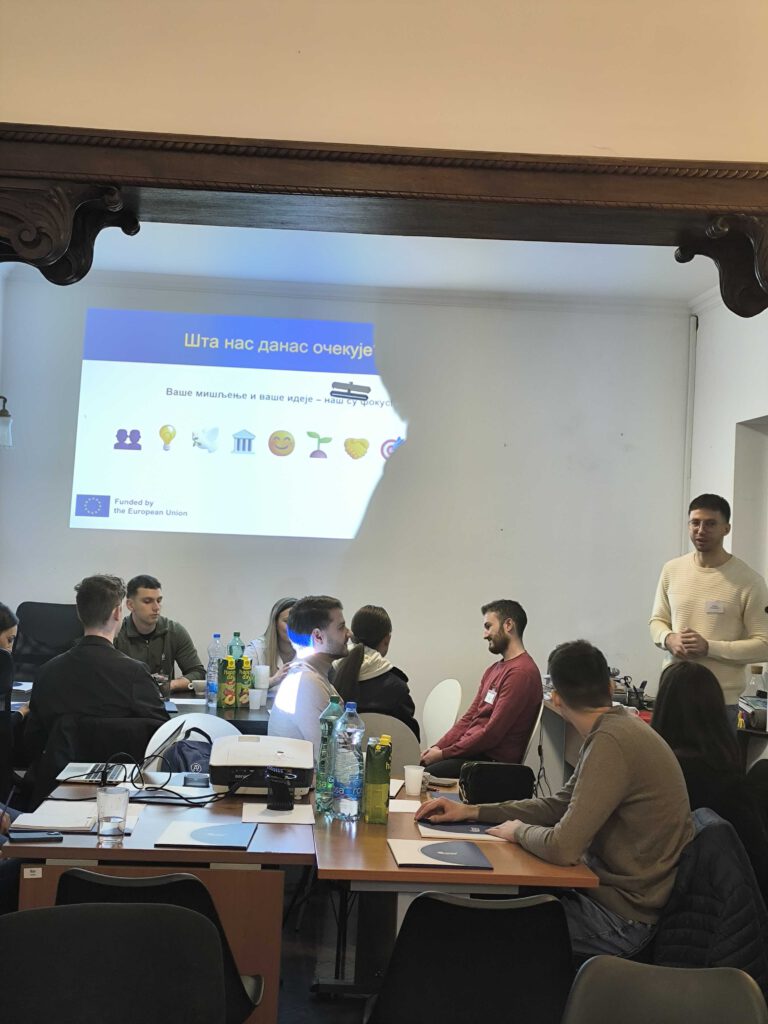
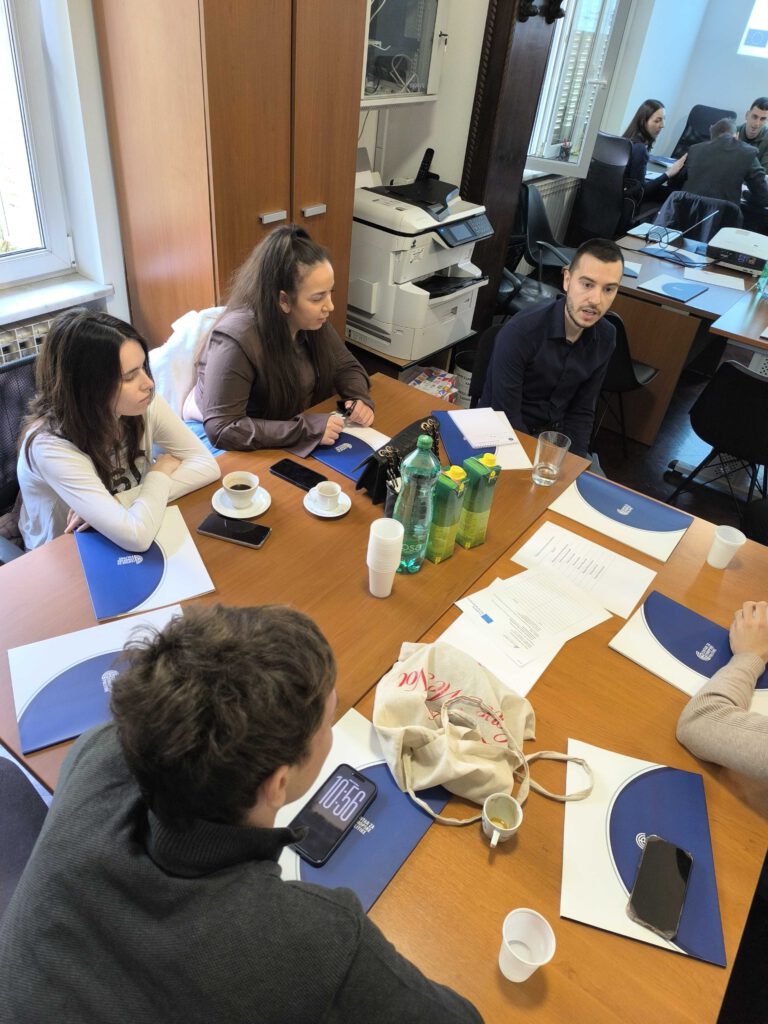
Invigorating the EU’s Enlargement Toolbox for a Democratic and Resilient Europe
During the PEC conference of the European International Studies Association (EISA), all four ongoing Horizon Europe sister projects on EU enlargement and Neighbourhood Policy (InvigoratEU, GEO-POWER-EU, RE-ENGAGE, REUNIR) engaged in discussing their mid-term results within the framework of a conference section organised by the coordinator of “RE-ENGAGE” Pernille Rieker from Norwegian Institute of International Affairs. The project InvigoratEU contributed the panel “Invigorating the EU’s Enlargement Toolbox for a Democratic and Resilient Europe”, chaired by Funda Tekin (IEP), the project’s scientific lead. The RE-ENGAGE researcher Morten Bøås (NUPI) was the panel’s commentator and provided beneficial feedback to further advance the papers towards publication.
Elena Ventura, Carnegie Europe, and Giselle Bosse, Maastricht University, discussed the actorness of the EU and its moral leadership potential. They outlined the relative cohesiveness of the EU’s response to the Russian war in Ukraine, while national positions on Israel’s war in Gaza were much more divers.
Artur Gruszczak, Jagiellonian University in Krakow, traced the debate on resilience and capacity building in security and defence. He argued along the lines that the EU’s resilience-enhancing activities directed at its partner states had undergone significant changes due to the long-term destabilising impact of Russia.
Based on the Strategic Culture approach, Julian Plottka, Institut für Europäische Politik, Berlin, discussed Chinese and Russian foreign interference in Ukraine to highlight the need for a multi-dimensional understanding of security threats. He concluded that in spite of the EU’s multi-dimensional approach to security, instruments to address these challenges still required further development.
Levan Kakhishvili, ETH Zürich, analysed, whether EU-induced amendments to the Georgian labour code had direct effects on working conditions in the country. His paper showed that there was no observable improvement of working conditions following increased formal convergence with the EU’s social acquis.
Thus, all four analyses provided concrete recommendations, where the EU had to develop its toolbox further. The discussion on which instruments were most suitable to address these gaps, is the task ahead for the InvigoratEU project.
InvigoratEU at the ECPR Joint Sessions 2025 in Prague
From 20 to 23 May 2025, members of the InvigoratEU project participated in the ECPR Joint Sessions of Workshops in Prague. As part of the workshop “Enlarging, Fast and Slow: European Integration under a Security Imperative”, chaired by Veronica Anghel (EUI) and Frank Schimmelfennig (ETH Zurich), researchers explored the evolving dynamics of EU enlargement in light of Russia’s war against Ukraine and broader geopolitical developments. The workshop brought together 21 papers and 22 participants for in-depth discussions over four days and addressed timely topics such as rule of law conditionality, differentiated integration, geopolitical imperatives, and the tension between democratic legitimacy and strategic interests.
Several InvigoratEU-related contributions featured in the workshop included Giselle Bosse’s presentation „‘Widening’ with Integrity? The Democratic Legitimacy of the EU’s Enlargement Process in a Geopolitical Era”; Tyyne Karjalainen and Juha Jokela’s „Capacity Building in and with the Neighbourhood in the Context of EU Enlargement”; Levan Kakhishvili’s „Exporting paper tigers? The effects of formal convergence with the EU labour law on working conditions in Georgia”; Frank Schimmelfennig’s „Boundary change and external differentiation in EU enlargement”; and Ramūnas Vilpišauskas’s „EU role in protecting critical infrastructure – a case of functional and geographical spill-over?”
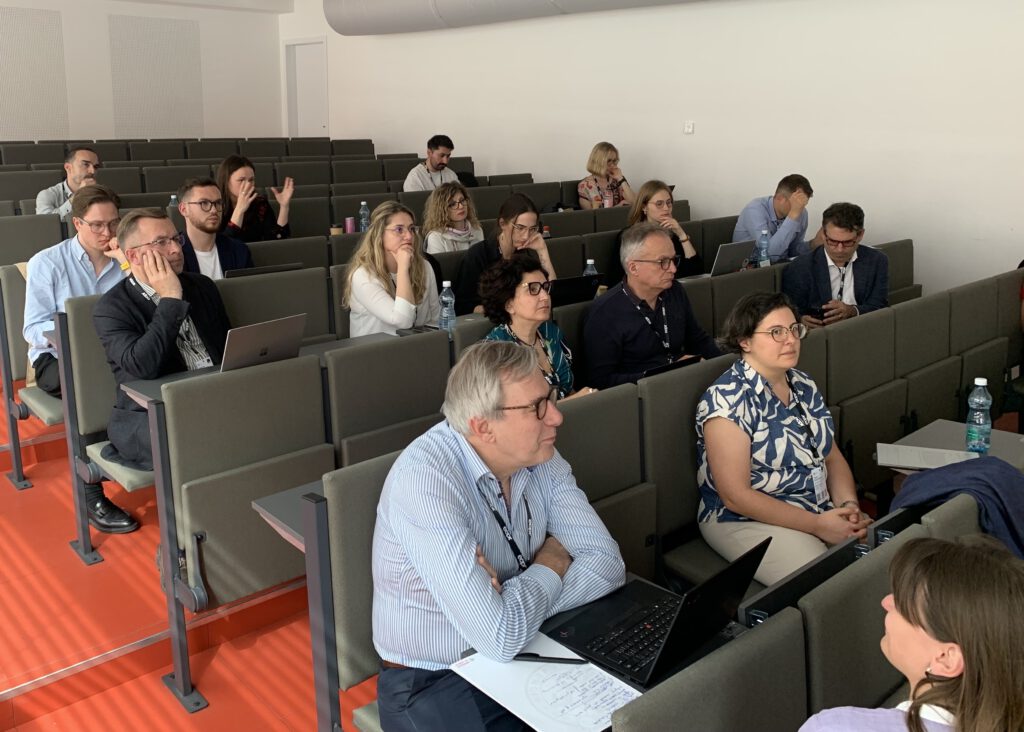
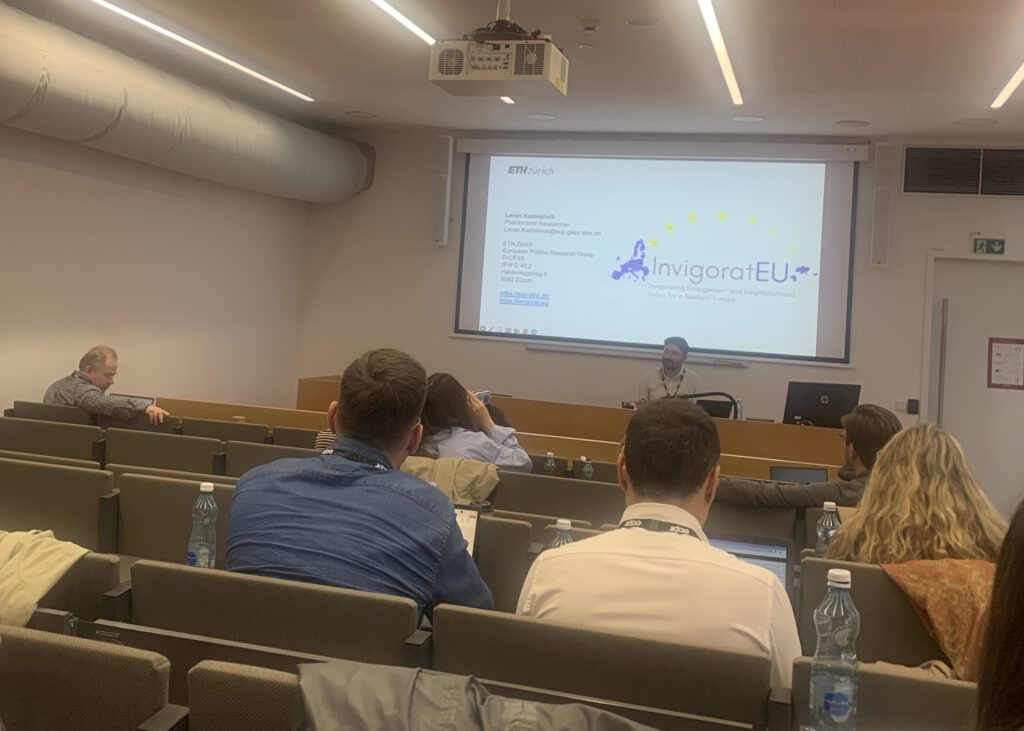
InvigoratEU Youth Lab at the Razumkov Centre
On April 30, 2025, Razumkov Centre hosted a youth laboratory seminar „Specifics of Transformational Processes and Prospects of the EU Enlargement in the Context of Ukraine’s European Integration“ for students of the Faculty of Law and International Relations of the Borys Grinchenko Kyiv Metropolitan University. The seminar was held as part of the „InvigoratEU“ project, implemented by the Centre in a consortium with TEPSA.
In his opening remarks, Razumkov Center President Y. Yakymenko spoke about the Centre’s role in the „InvigoratEU“ project, outlined the thematic areas of this project, and described the state and prospects of the EU development.
The Co-Director of Foreign Policy and International Security Programmes at Razumkov Center M. Pashkov held an interactive dialogue with the seminar participants on the regulatory and legal mechanisms of the European Union, specifics of the Ukraine-EU contractual relations, the progress of negotiations between Kyiv and Brussels, etc.
The security component of the Ukraine-EU partnership in the context of the large-scale Russian aggression was covered by O. Melnyk, Co-Director of Foreign Policy and International Security Programmes at Razumkov Centre.
Having discussed the current EU policy, problems and prospects of further development of the European Union, the students had an opportunity to present their proposals and recommendations on intensification and improvement of the process of the EU enlargement, strengthening its resilience in the context of modern internal and external problems and challenges.
The seminar participants put forward recommendations for improvement of the education system to enhance the knowledge of young people about the EU current activities and prospects. The students also focused on the EU steps intended to speed up Ukraine’s European integration and strengthen support for Kyiv, resisting Russian aggression, as well as on the internal reforms, which Ukraine must implement to successfully advance on the path of European integration.

InvigoratEU Youth Lab: Students from the University of Passau Discuss Challenges of EU Enlargement Policy
During Europe Week at the University of Passau Florence Ertel and Julian Plottka organized an InvigoratEU Youth Lab. 30 motivated students discussed challenges of EU enlargement policy and developed concrete policy proposals.
The EU’s decision to grant candidate status to Georgia, Moldova, and Ukraine has led to new momentum for EU enlargement policy. However, in addition to the Russian war of aggression against Ukraine there are more geopolitical threats to the EU. China, Russia, Turkey and other third countries are trying to exert political influence on EU member states and countries in the EU’s neighbourhood. In order to withstand these influences, the EU, its member states, and neighbouring countries must become more resilient to external shocks.
How to achieve this goal was the guiding question of the InvigoratEU Youth Lab. Florence Ertel (Jean Monnet Chair of European Politics, University of Passau) and Julian Plottka (Institut für Europäische Politik, Berlin, and Jean Monnet Chair for European Politics, University of Passau) organized it during the university’s Europe Week 2025.
Following an introduction to the concept of resilience with a special focus on the EU’s military capabilities, 30 participants discussed specific challenges of European neighbourhood and enlargement policy in seven working groups. The debate cantered around EU cohesion, along with energy, migration, and economic policy as well as the Russian war of aggression. The students were concerned both about the EU’s insufficient actorness, with the 27 member states often showing a lack of political will to act, and about societal cohesion, which is being undermined by democratic backsliding, nationalism, disinformation, and the direct influence of third countries.
After analysing the problems, students prioritized the identified challenges. They identified foreign influence, democratic backsliding, lack of political will to cooperate, and fragmentation of civil society as the most important. In four working groups, the participants developed specific recommendations on how the EU can overcome these challenges. All groups concluded that strengthening of societal cohesion and more efficient decision-making at the supranational level – with less power to obstruct for individual member states – are urgent measures to address the challenges.
Discussions were in the tradition of the Schuman Declaration of 1950, on the occasion of its anniversary the InvigoratEU lab was held. Both the problem analysis and policy recommendations will feed directly into the work of the research project InvigoratEU: Invigorating Enlargement and Neighbourhood Policy for a Resilient Europe, which is funded by the European Union through its Horizon Europe program.
Author: Jan Luka Keusemann

New Publication "The Impact of Infrastructure Development on the Economic Growth of the Countries in the Western Balkans and their EU Future" by Prof. dr Danijela Jaćimović, Milena Lipovina-Božović, Bojan Pejović and Sunčica Vuković
The infrastructure investment could strongly influence the economic growth in the Western Balkans countries and contribute to improved regional cooperation and reconciliation and to faster integration into the EU. However, it is essential that public investments in infrastructure are properly financed and managed. To measure the impact of infrastructure indicators on economic growth, panel regression analysis was used for the period 2000-2021, in six Western Balkan countries. The paper addresses the important question of how to intensify investments in infrastructure to achieve sustainable growth in the Western Balkans. The obtained results confirm the earlier findings about the significant impact of energy, ITC, and road infrastructure on economic growth in the Western Balkans.
InvogoratEU Youth Lab at the University of Montenegro
Our latest InvigoratEU Youth Lab was arranged and held at the Faculty of Economics of the University of Montenegro on the 10th of April to engage young people in participating in shaping the future of the European Union. Throughout the workshop, 31 students participated actively in a two-hour workshop focused on EU enlargement and sustainability. The workshop started with input by Prof. Danijela Jaćimović, who presented the current challenges of the EU and the strategic role of the enlargement process in the global context of the current era. In small groups, the participants named key challenges related to the accession policy of the EU and proposed concrete recommendations for policymakers. An open discussion followed, during which students emphasized the need to modernize the enlargement process in order to incorporate the new geopolitical reality and bring more transparency, efficiency, and public involvement. At the same time, they highlighted sustainability as a key pillar of the EU’s future, urging the integration of sustainable strategies into all policy-making domains in order to promote long-term economic and environmental resilience. The workshop provided valuable youth perspectives and made a significant contribution to the wider debate on the future of EU policy in a changed world.


ETH Zurich hosts an InvigoratEU Youth Lab discussing EU enlargement and neighbourhood policy
On 15 April, ETH Zurich hosted an InvigoratEU Youth Lab. The workshop gathered 24 undergraduate and graduate students of various academic disciplines to discuss the issues related the EU enlargement and neighbourhood policy. Following the initial input regarding the history of EU enlargement and InvigoratEU’s modernization and geopolitical logic of understanding and interpreting the enlargement policy, the Youth Lab participants engaged in group work exercises.
Participants first brainstormed about the challenges the EU enlargement policy currently faces, and then they worked in small teams to elaborate on how policy makers should solve these challenges and how educators should contribute to the advancement of knowledge about the EU among the European societies. Among the most acute challenges, the participants identified the need for the internal reform for the EU and territorial conflicts in candidate countries. Consequently, the recommendations focused on ensuring that the EU is institutionally ready to enlarge and that candidate countries have clear solutions to their border disputes before accession. Particular emphasis was placed on the need to educate EU citizens on the EU affairs since a young age, for example, by introducing school subjects on EU studies.
The workshops created space for young people to freely express their ideas as well as concerns regarding the current developments in the EU domestic politics as well as external relations and think about what can be done to improve the situation. Their ideas, will inform the further work of the InvigoratEU’s team.


Youth Lab at Maastricht University
On 8 April, Maastricht University hosted an invigoratEU Youth Lab gathering 24 undergrade and graduate students with different academic backgrounds and from both within and outside the European Union. This exercise allowed students to provide direct feedback on EU policies and brainstorm policy recommendations for EU enlargement.
Giselle Bosse and Elena Venture kicked off the youth lab by presenting the key theories and concepts of InvigoratEU. The students then met in breakout groups to identify challenges in EU enlargement and the neighborhood policy of the EU as well as possible recommendations. Participants shared their concerns on the need to reform the Union. They perceived unanimity voting as inadequate for current EU decision making progresses, especially with regards to Article 7 and the enlargement.
In their recommendations, students focused on the development of more effective tools and ex post compliance mechanisms to monitor the rule of law in EU member states. They also called for a differentiated and targeted policy to approach the Eastern neighbourhood. Notably, students called for the implementation of staged accession and gradual integration.
These findings will inform the work of Maastricht University for the remainder of the project.
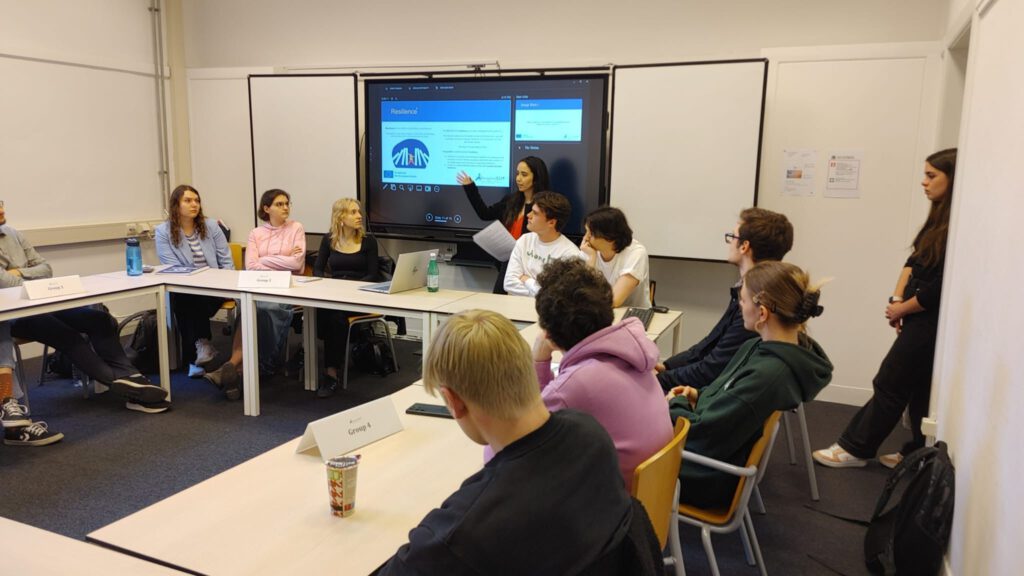
Youth Lab at the Vilnius University
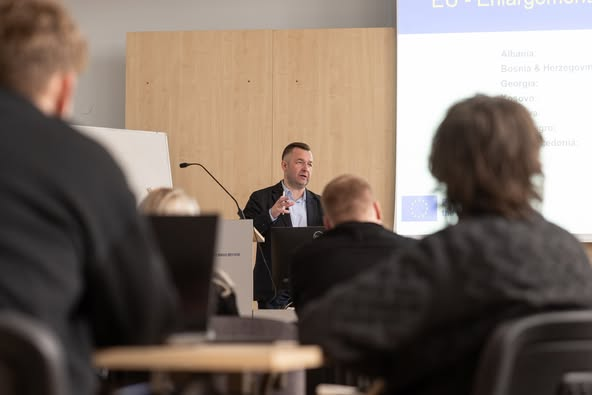
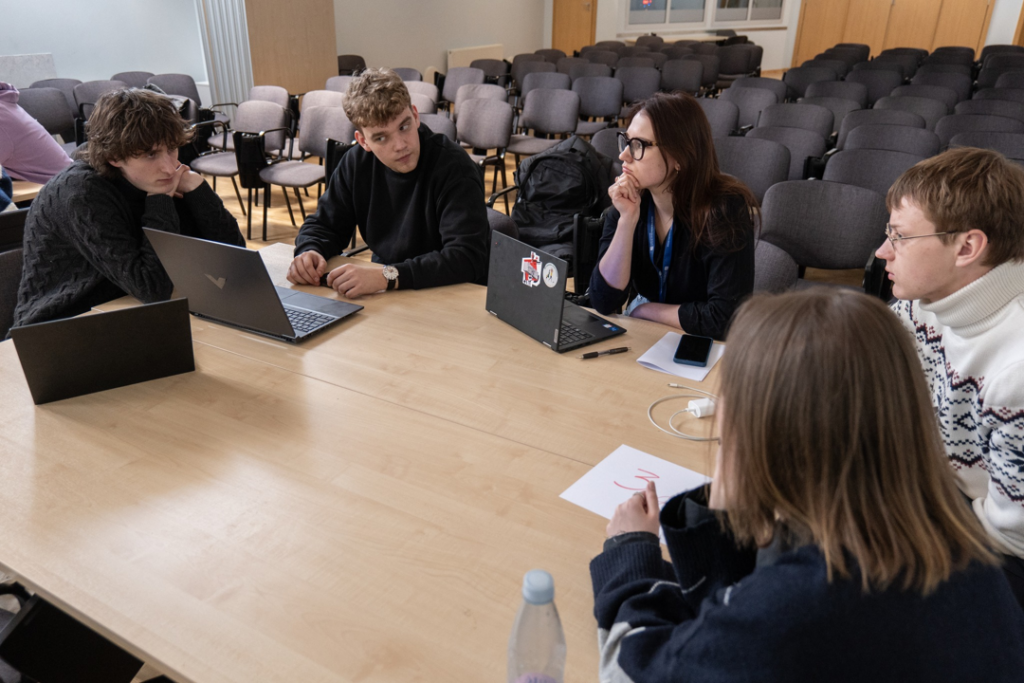
First InvigoratEU Youth Lab in Barcelona
The first InvigoratEU Youth Lab was held in Barcelona on 27 March, organised and facilitated by CIDOB. The workshop gathered 27 students who brainstormed and discussed about EU enlargement and neighbourhood policy. Participants were divided into groups to identify challenges and then worked to formulate concrete recommendations for policymakers as well as for the education sector. Students reflected on a range of issues such as the necessity for internal reforms and institutional change, the importance of strengthening civic society, or the need to reflect on EU’s own identity. All in all, their insights greatly contributed to a deeper understanding of the complexities surrounding EU enlargement and neighbourhood policy.
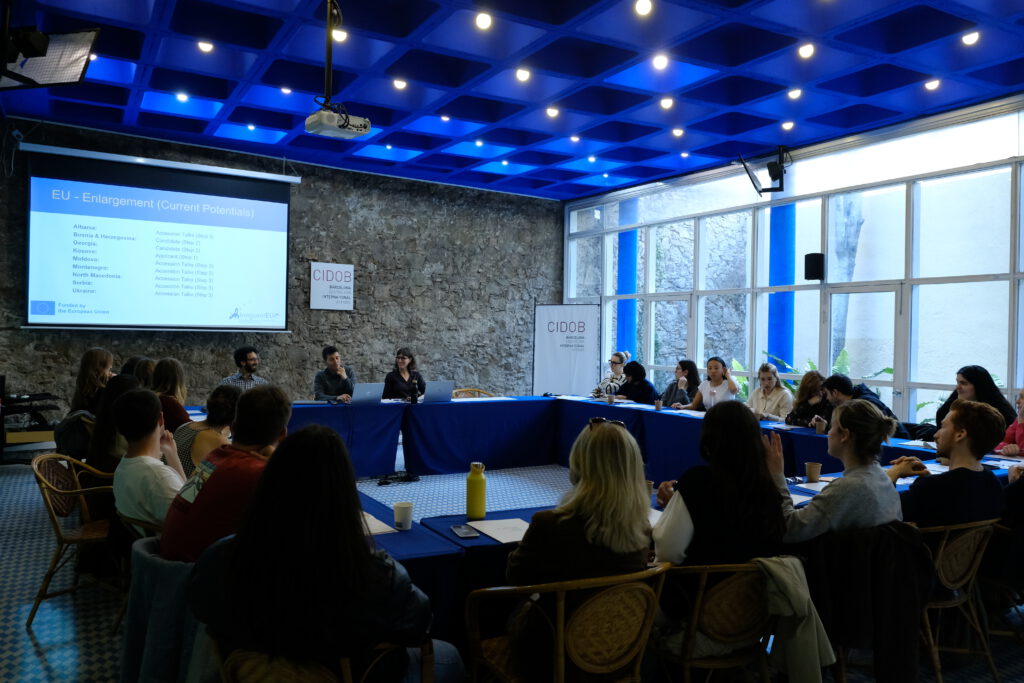
InvigoratEU Youth Lab in Brussels
On 20 March, Carnegie Europe Foundation hosted an invigoratEU Youth Lab. Bringing together 23 Brussels-based students from diverse national and academic background, the Youth Lab provided the opportunity for young people to think out of the box and develop concrete recommendations on the future of EU enlargement.
Following an introduction on the fundamental theories and concepts of our projects, the students discussed and identified key challenges in EU enlargement and the neighborhood policy of the EU. Working in small groups, they looked at both internal and external challenges. Notably, participants highlighted the issue of democratic backsliding within the Union as weakening the political leverage of the enlargement policy and contributing to enlargement fatigue. They also underscored the current inadequacy of the Eastern Partnership framework due to marked differences among the different EaP countries.
In their recommendations, students focused on the development of more effective tools and ex post compliance mechanisms to monitor the rule of law in EU member states. They also called for a differentiated and targeted policy to approach the Eastern neighbourhood.
The format of the Youth Lab ensured that young people are not just passive respondents of policy but can also actively discuss and shape policies that concern them. Their findings will inform the work of Carnegie Europe Foundation for the remainder of the project.
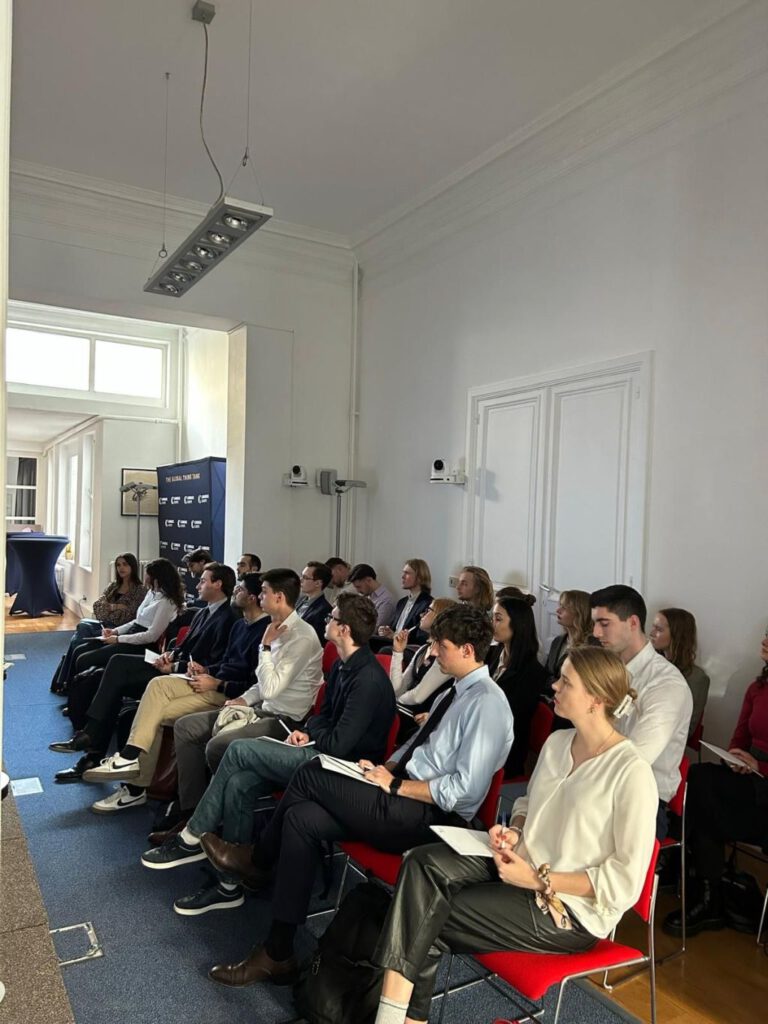
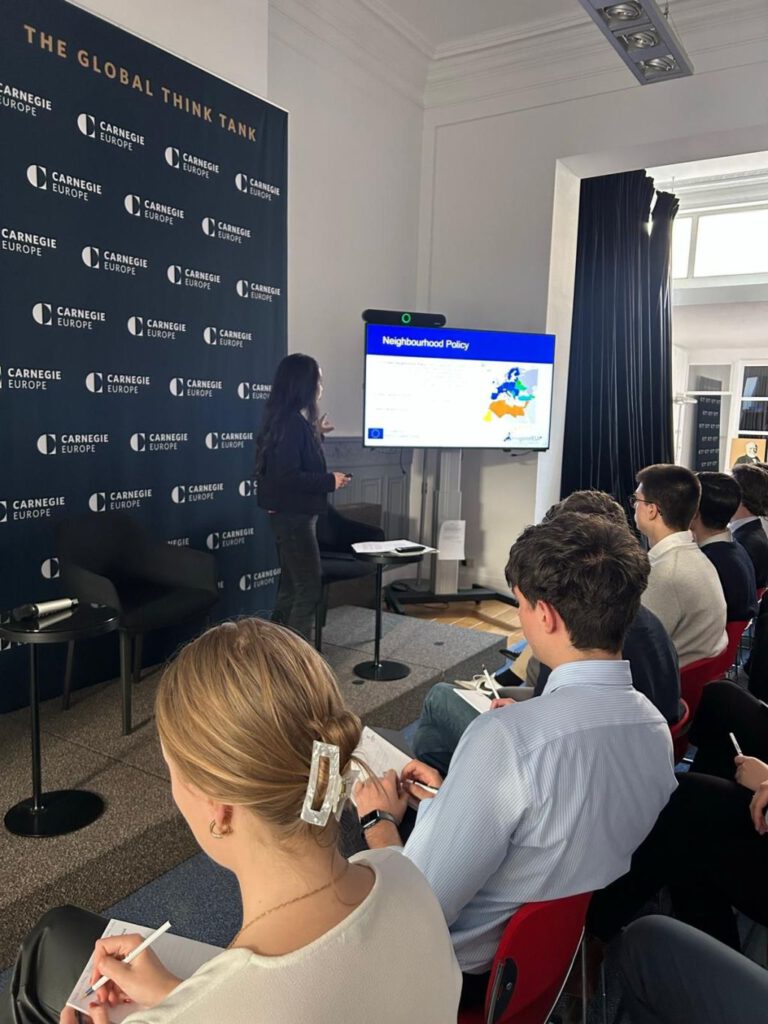
New Publication! "Differentiated democratic enlargement to sharpen EU accession process"
February 5, 2025
The newly published article „Differentiated Democratic Enlargement To Sharpen EU Accession Process“ by Richard Youngs (Senior Fellow, Carnegie Europe) addresses the future of further EU enlargement and is closely related to the InvigoratEU project.
Find the article here.
The future of EU enlargement: Views from Helsinki, Stockholm and Vienna
The Trans European Policy Studies Association (TEPSA), the Finnish Institute of International Affairs (FIIA) and the Austrian Society for European Politics (ÖGfE)/Europa Club Wien, brought together experts from Austria, Finland and Sweden to discuss the three countries’ views on EU enlargement in a dedicated online discussion on 5 December 2024 at 9:30 CET / 10:30 EET. The event was hosted on Zoom and livestreamed on TEPSA’s YouTube channel.
See more information on the TEPSA website.
Polish Pre-Presidency Conference | Who Should be the Real Time-Keeper in EU Enlargement?
At the Polish Pre-Presidency Conference, which took place on 21-22 November in Warsaw, TEPSA hosted a panel on EU enlargement which you can see in the following video.
Elections in Georgia and Moldova: What Next for the Accession Path?
The Trans European Policy Studies Association (TEPSA) and the Policy Management and Consulting Group (PMCG) hosted the public webinar “Elections in Georgia and Moldova: What Next for the Accession Path?” on 8 November. The event took place online via Zoom and was livestreamed on TEPSA’s YouTube channel.
See more information on the TEPSA website.
Enlarging, Fast and Slow: European Integration under a Security Imperative
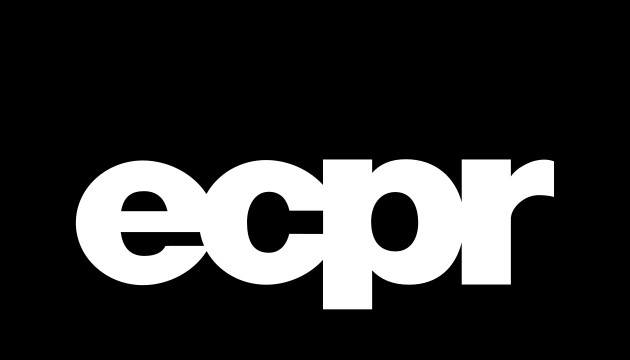
Veronica Anghel (EUI) and Frank Schimmelfennig (ETH Zürich) will direct a workshop on “Enlarging, Fast and Slow: European Integration under a Security Imperative” at the Joint Sessions of Workshops of the ECPR in Prague, 20-23 May 2025. Please find additional information here and submit a paper proposal before 21 November 2024.
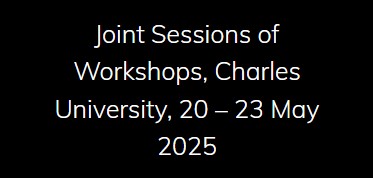
Call for Applications - InvigoratEU Academy: "Making EU Enlargement a Success."
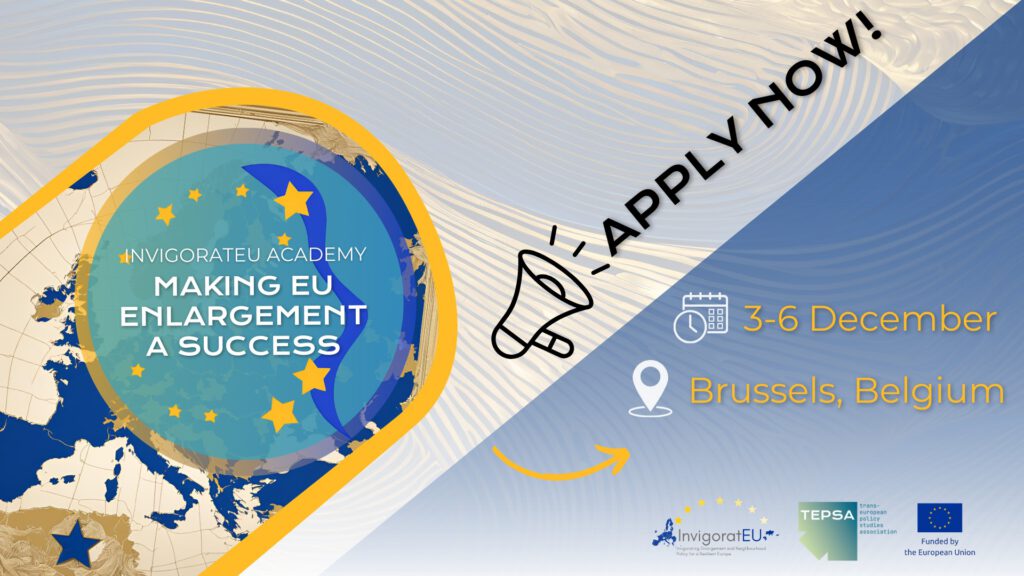
Deadline October 15!
The EU’s approach to enlargement has undergone significant transformation since Russia’s full-scale invasion of Ukraine. To discuss these changes and reflect on the necessary policy adjustments needed to enable the EU enlargement, we invite you to join us for the InvigoratEU Academy: “Making EU enlargement a success” that will take place in Brussels from 3-6
December 2024. This programme will provide you with a comprehensive understanding of EU enlargement policies and the current geopolitical needs and will offer you the chance to meet senior professionals working on these topics. Through expert-led sessions and meetings with leading EU practitioners, you will gain the knowledge and skills necessary to actively shape and influence the future of the EU. Read the draft agenda at the end of this document.
For more information visit the TEPSA website here or have a look at the pdf below:
Call for applications: Making EU enlargement a success
Job advertisement: Research Associate, 75%, TVöD 13, 15 June 2024
As part of the Horizon Europe project InvigoratEU, funded by the European Commission, on the EU’s relations with the Eastern Neighbourhood and the Western Balkans, the Institute for European Politics (iep) is looking for a research associate with an average weekly working time of 29.25 hours as of 15 June 2024. Remuneration will be based on the federal TVöD 13 collective agreement. The position is limited to the three-year project duration until 31 December 2026.
For more information: https://iep-berlin.de/en/about/career/research-associate-invigorateu/
TEPSA Academy 2024 – EU enlargement
Call for applications!
The programme has been conceptualised with the goal of providing students from all over Europe with a comprehensive overview of the key debates surrounding enlargement from the EU’s perspective. By involving experts and practitioners from European institutions, think tanks and academia, it aims to create a space for brainstorming and discussion with students on why enlargement is a defining challenge, but also opportunity for the Union. We hope to open a debate and exchange between policy-makers, experts, and students on how to achieve enlargement without compromising on deepening in the EU, while focusing on the EU’s absorption capacity and analysing specific policies that will be particularly affected by an enlarged Union. Attention will be paid to differentiated integration, the EU’s transformative power in the context of enlargement, issues related to the rule of law, and the legal aspects of enlargement.
For more information see the Call and the detailed programme here:
Future of EU enlargement – 20 years’ experience and future perspectives
On April 18th the Institute of Political Science of the University Duisburg-Essen is inviting to a panel about the future of EU enlargement featuring Prof. Danijela Jacimovic (University of Montenegro), Prof. Boštjan Udovič (University of Ljubljana), Prof. Michael Kaeding (University Duisburg-Essen) and Oliver Schwarz (University Duisburg-Essen).
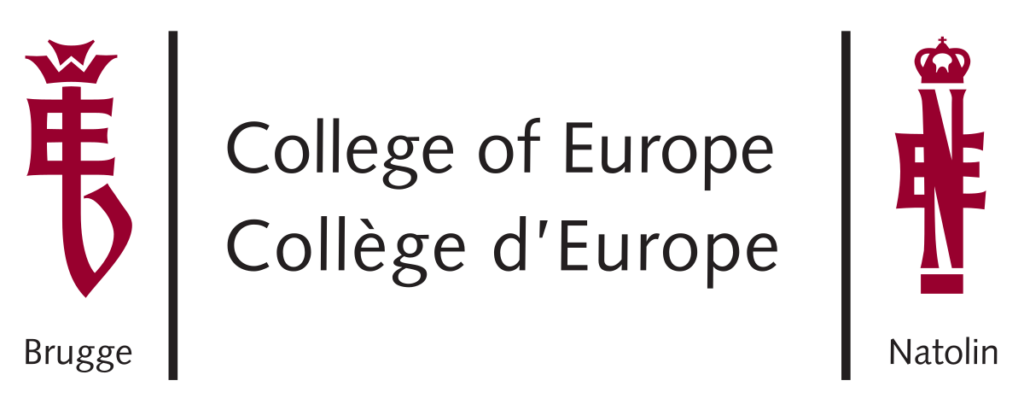
Job Vacancy - Director of Studies (30-50% FTE) - Department of European Transformation and Integration Studies (Tirana, Albania)
The College of Europe is seeking applications for the position of Director of Studies (30-50% FTE) of the study programme „Master of Arts in European Transformation and Integration – The EU and Southeastern Europe” (ETI) at the newly established Department of European Transformation and Integration in Tirana, Albania [coleurope.eu/tirana], starting from the academic year 2024-25 onwards (i.e. assuming responsibilities in August/September 2024 at the latest). The successful candidate will be contracted for the initial academic year, with an envisaged extension of two additional academic years (and renewable 3-year appointment periods afterwards).
For further information: Job Vacancy
New Horizon Europe Project
Preparing Europe for the future
With Ukraine, the Republic of Moldova and Georgia, the number of official candidate countries for accession to the European Union has grown to ten. This means that EU enlargement is once again a key strategy for contributing to greater stability and prosperity throughout Europe in times of new geopolitical challenges. From January 1, 2024, InvigoratEU* – a new Horizon Europe project coordinated by the EU-Chair at the University of Duisburg-Essen together with the Institute for European Politics in Berlin – will examine how the EU can structue its future relations with its eastern neighbours and the countries of the Western Balkans. The consortium will initially receive around three million euros in funding from the EU over the next three years.
New Publication "Enlargement and the Future of Europe - Views from the Capital"
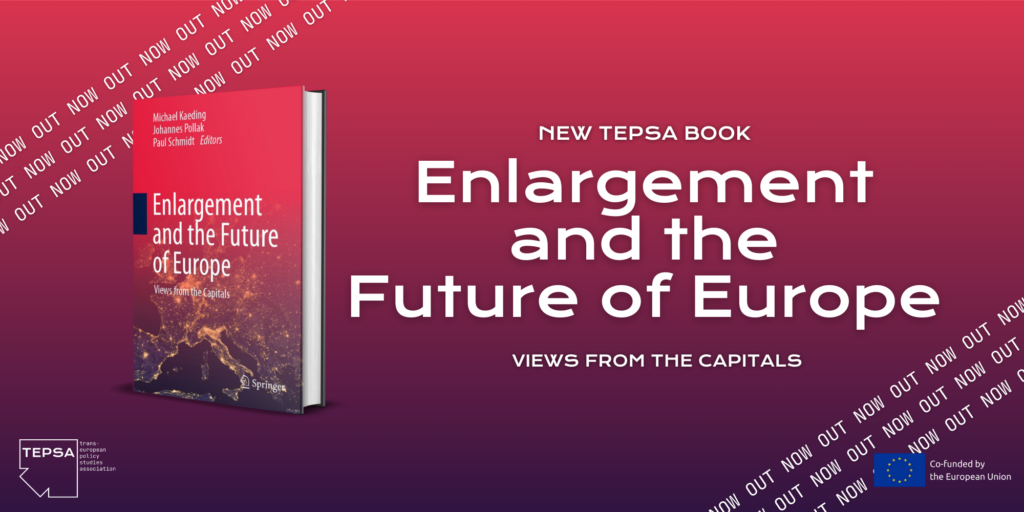
Short, opinionated chapters offering different perspectives from in- and outside of the EU, including most of our InvigoratEU consortium members. Big thanks to the Trans European Policy Studies Association (TEPSA) for their support and to the editors Michael Kaeding (InvigoratEU coordinator), Johannes Pollak, and Paul Schmidt (InvigoratEU Advisory Board Member) for their coordination. 📚🌍 #InvigoratEU #EuropeanFuture #Enlargement #TEPSA
Learn more: https://tepsa.eu/book-on-the-future-of-europe/
For more information and news follow our hashtag #InvigoratEU on Facebook and Instagram
